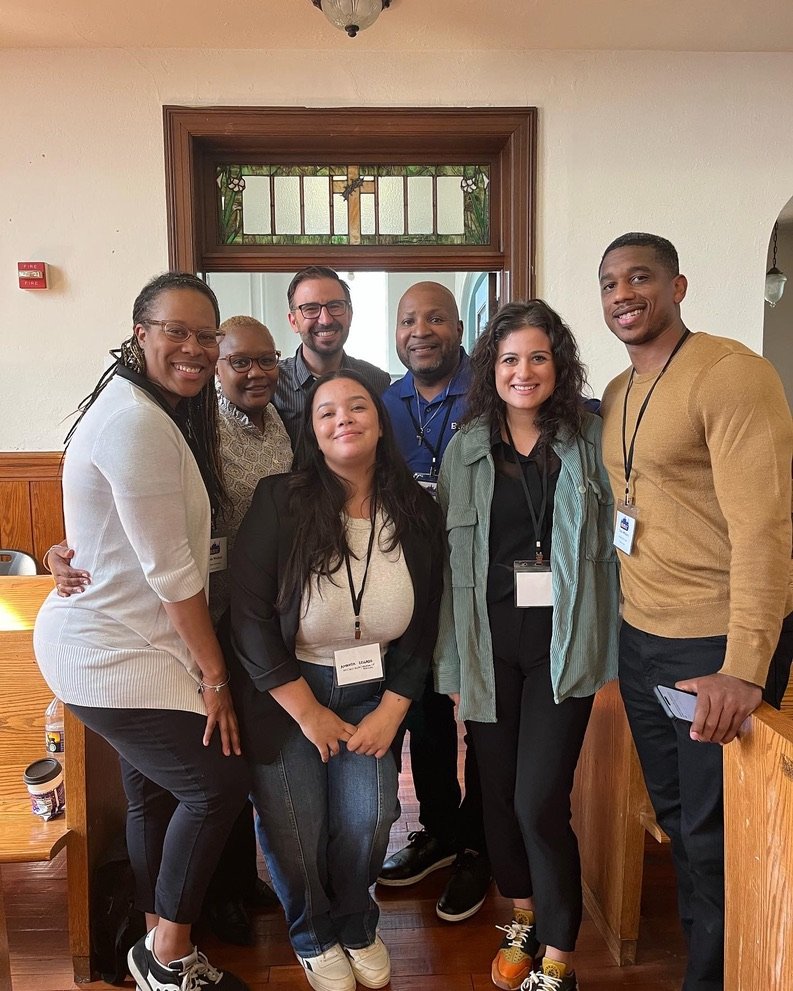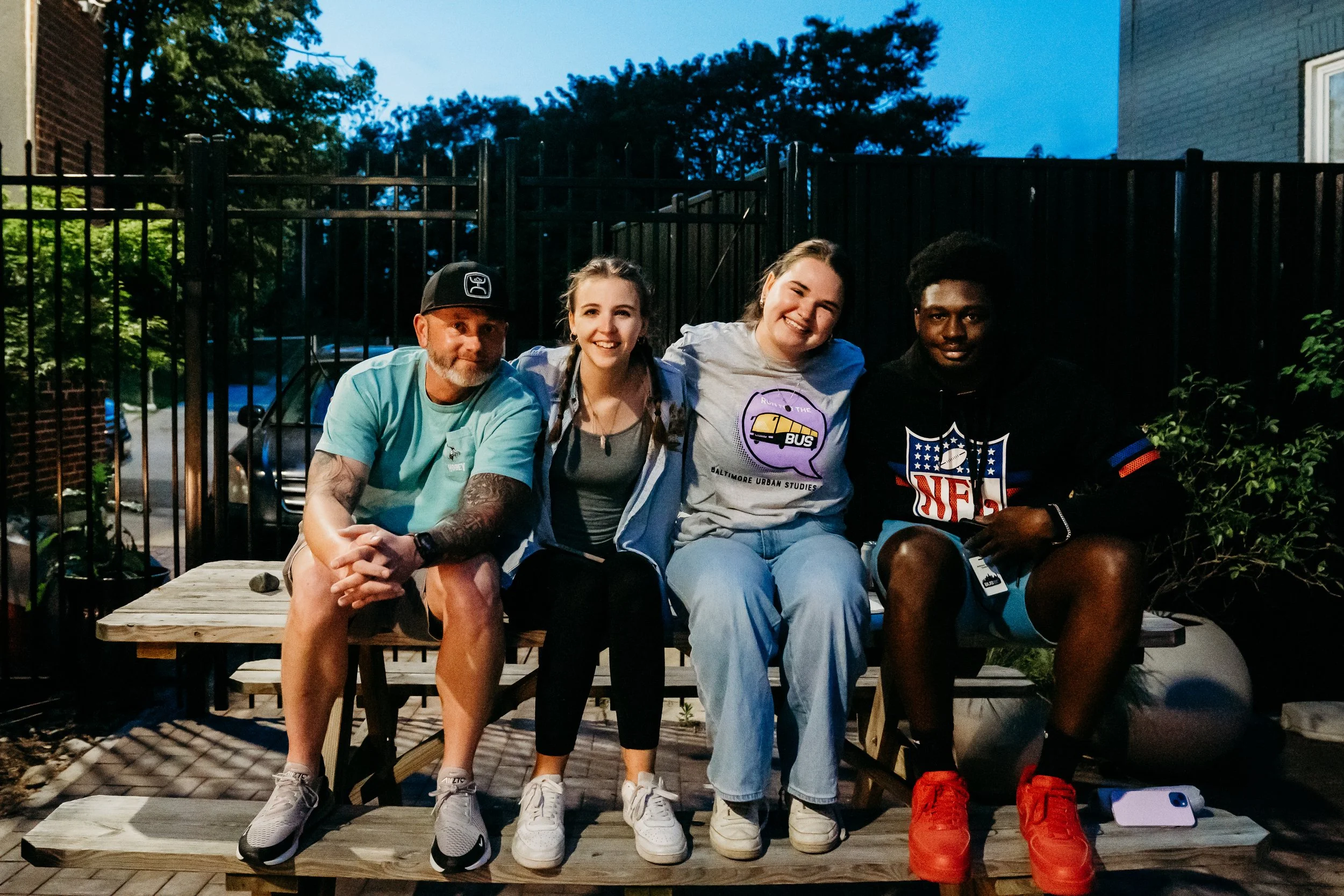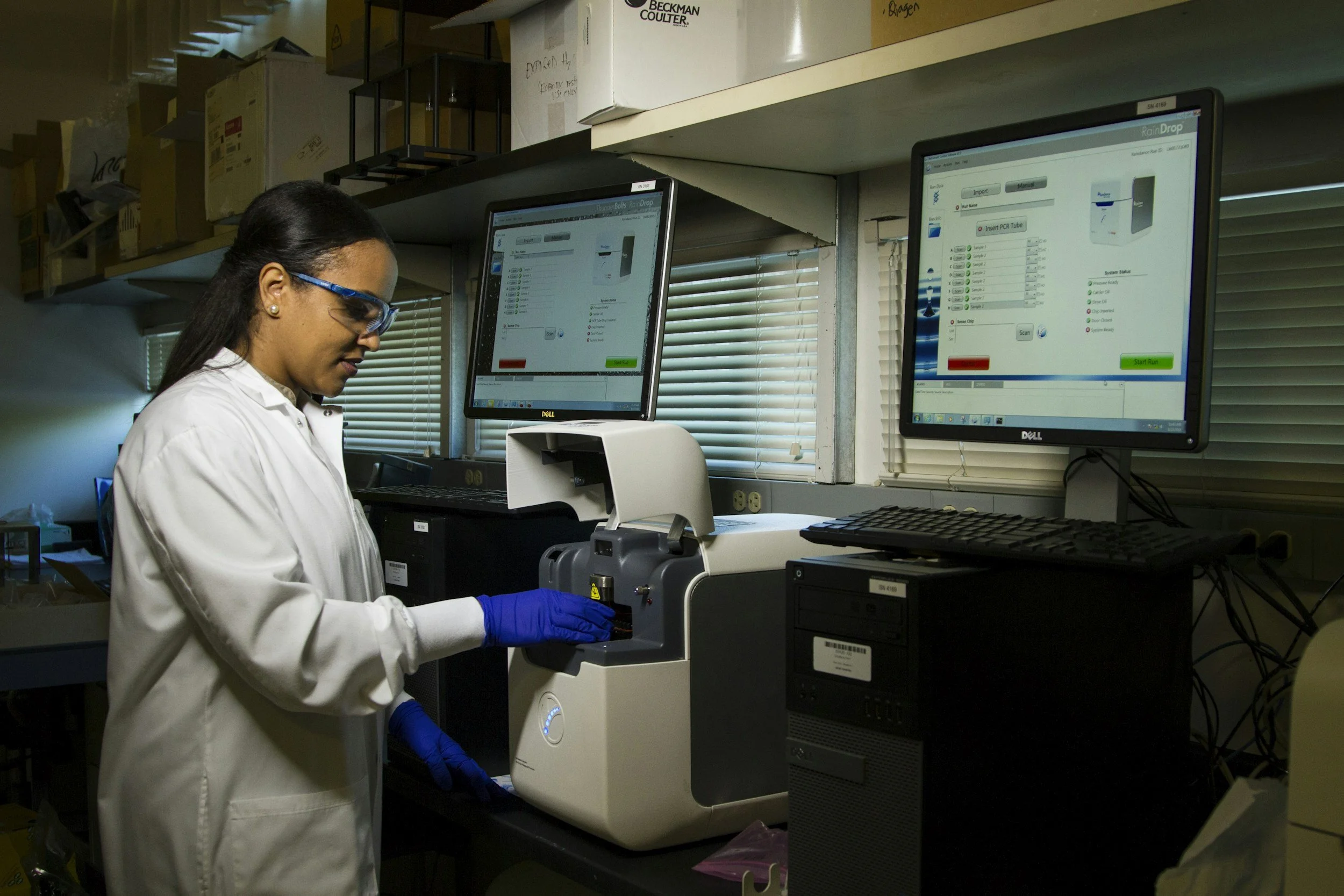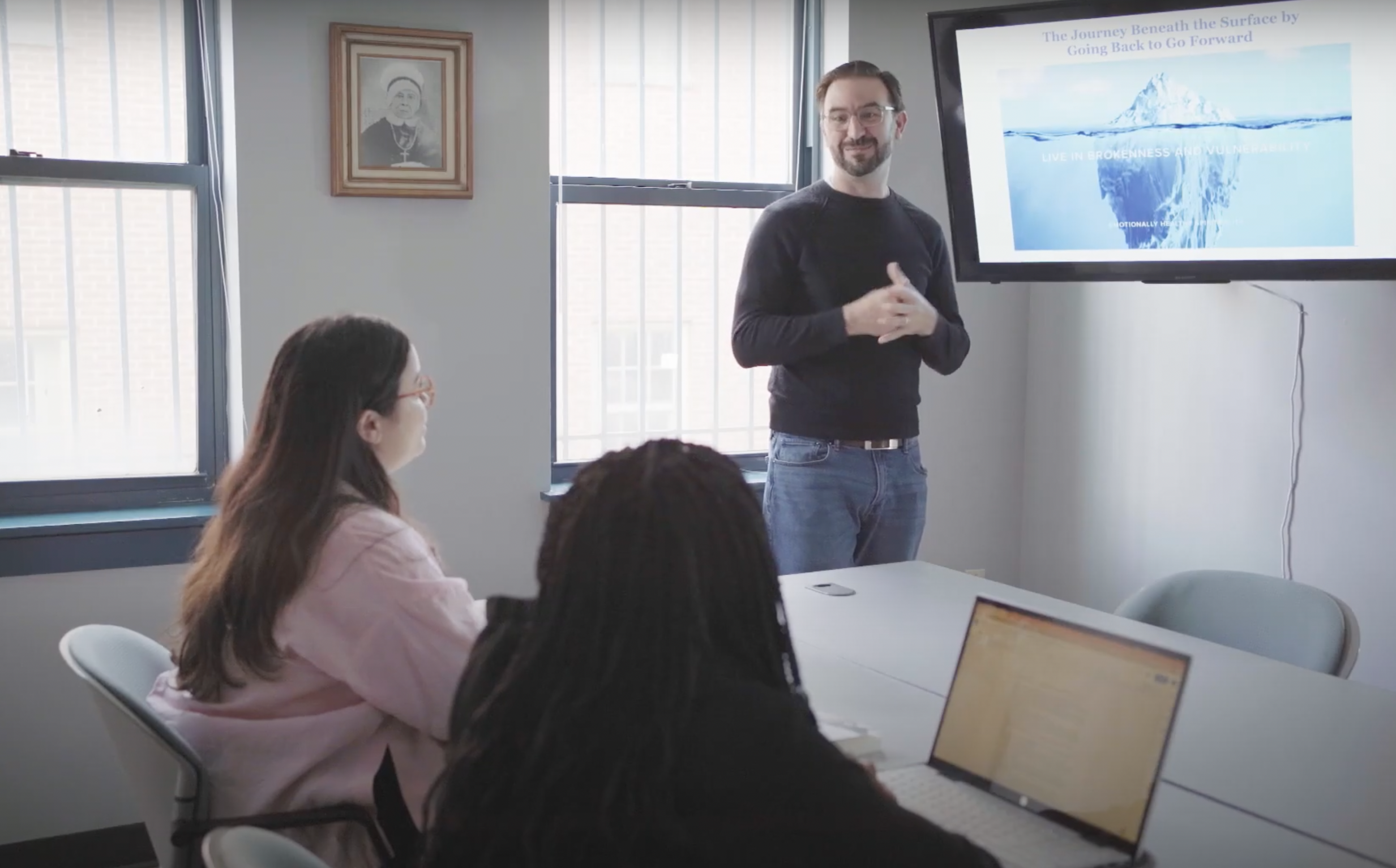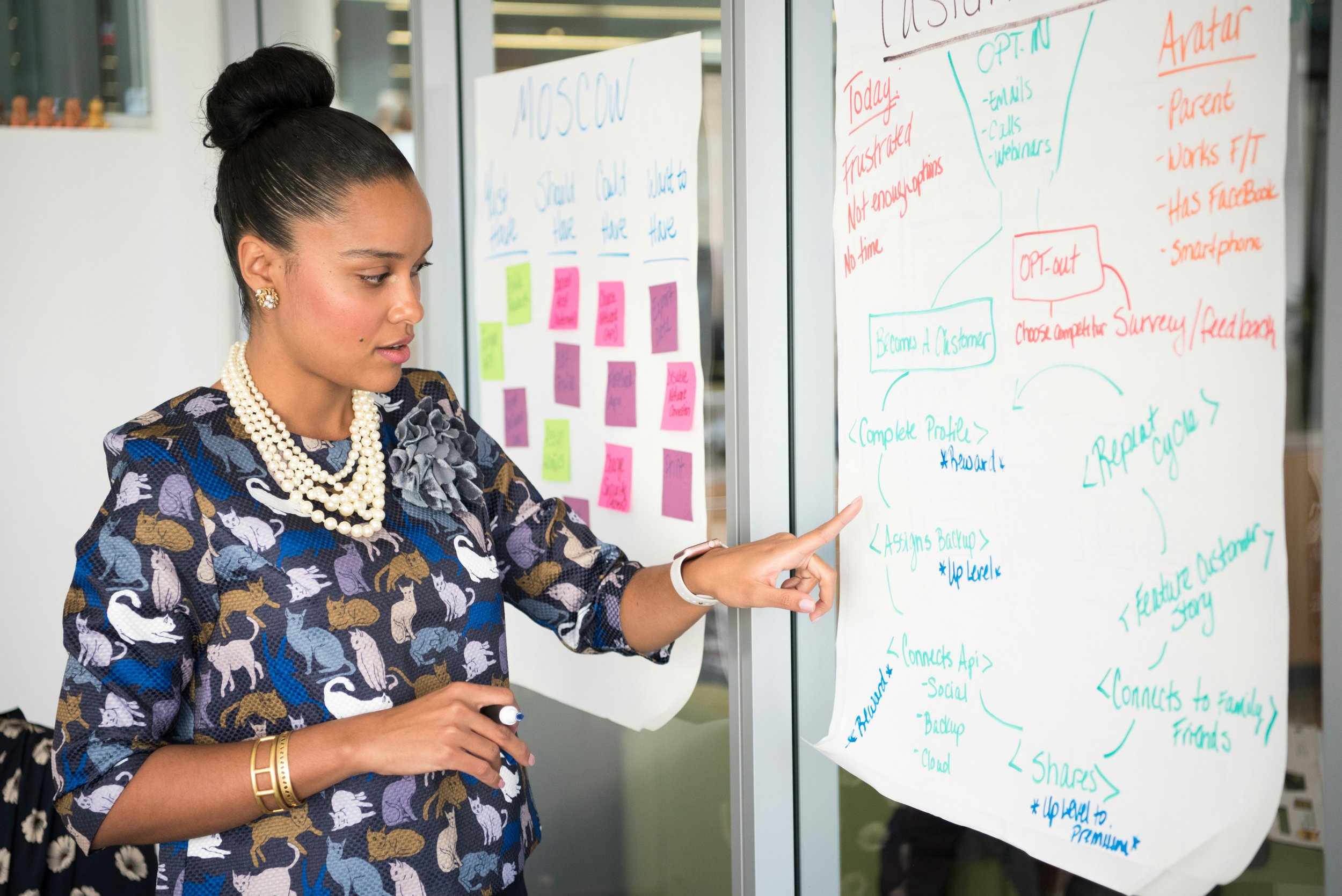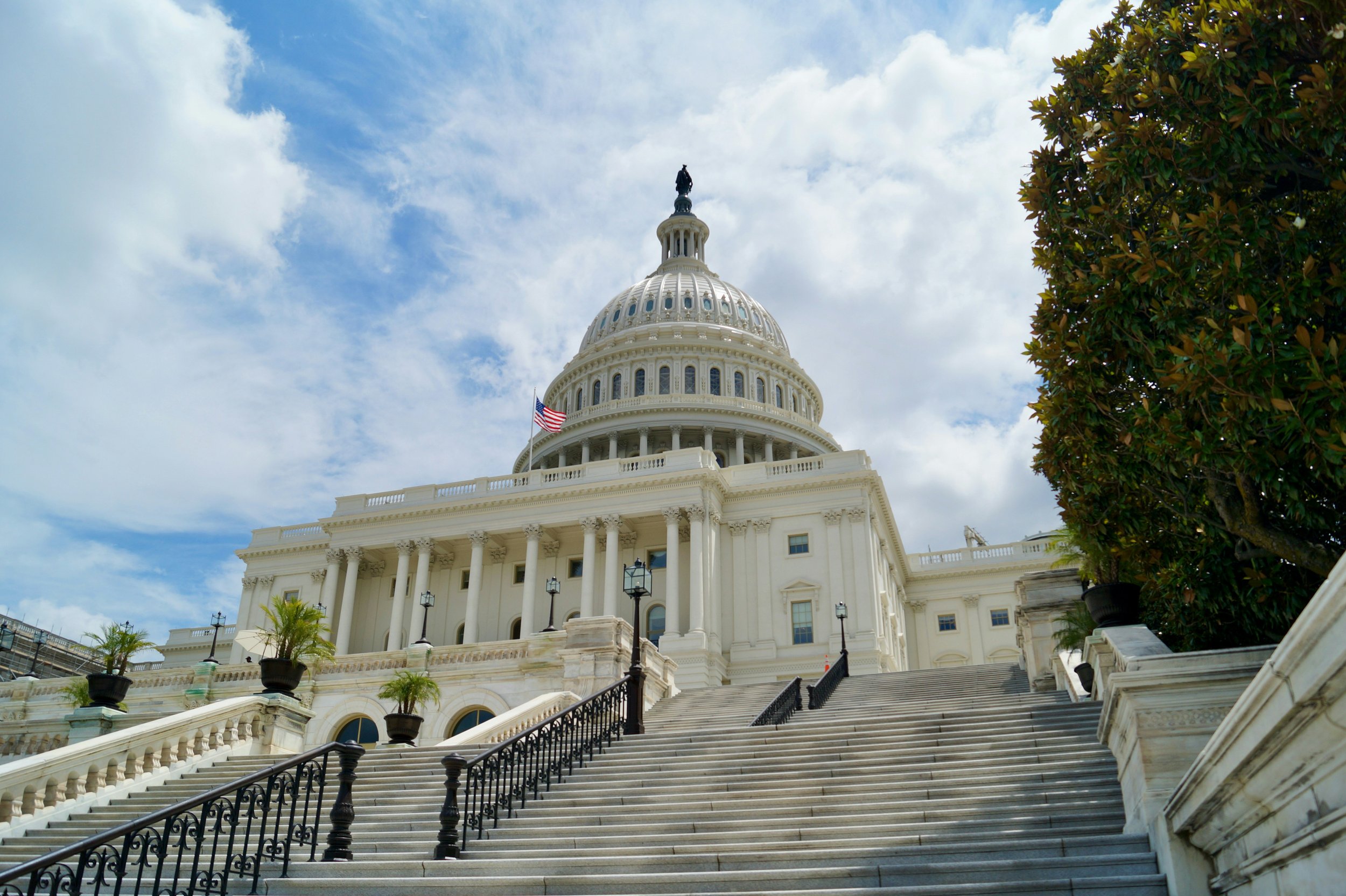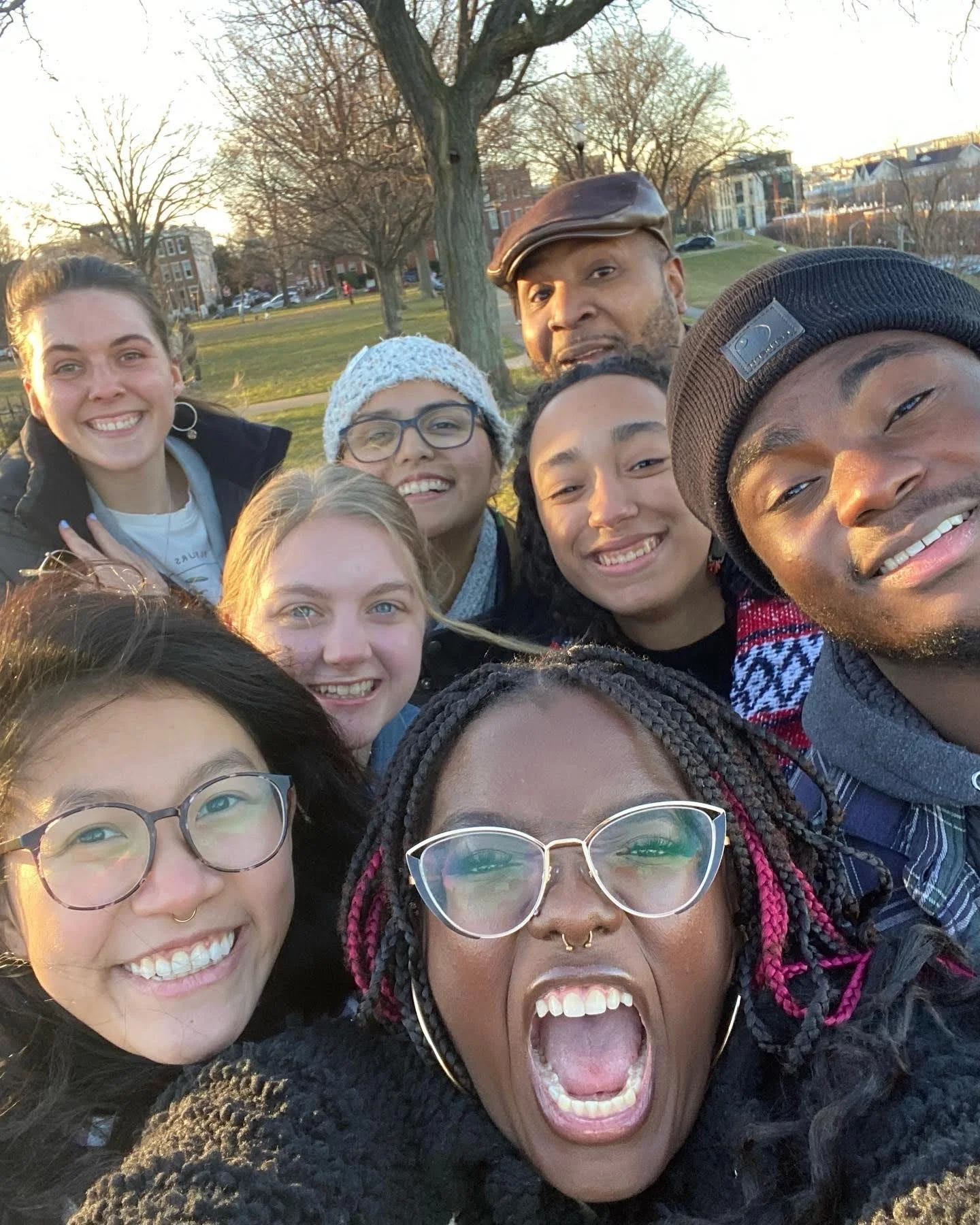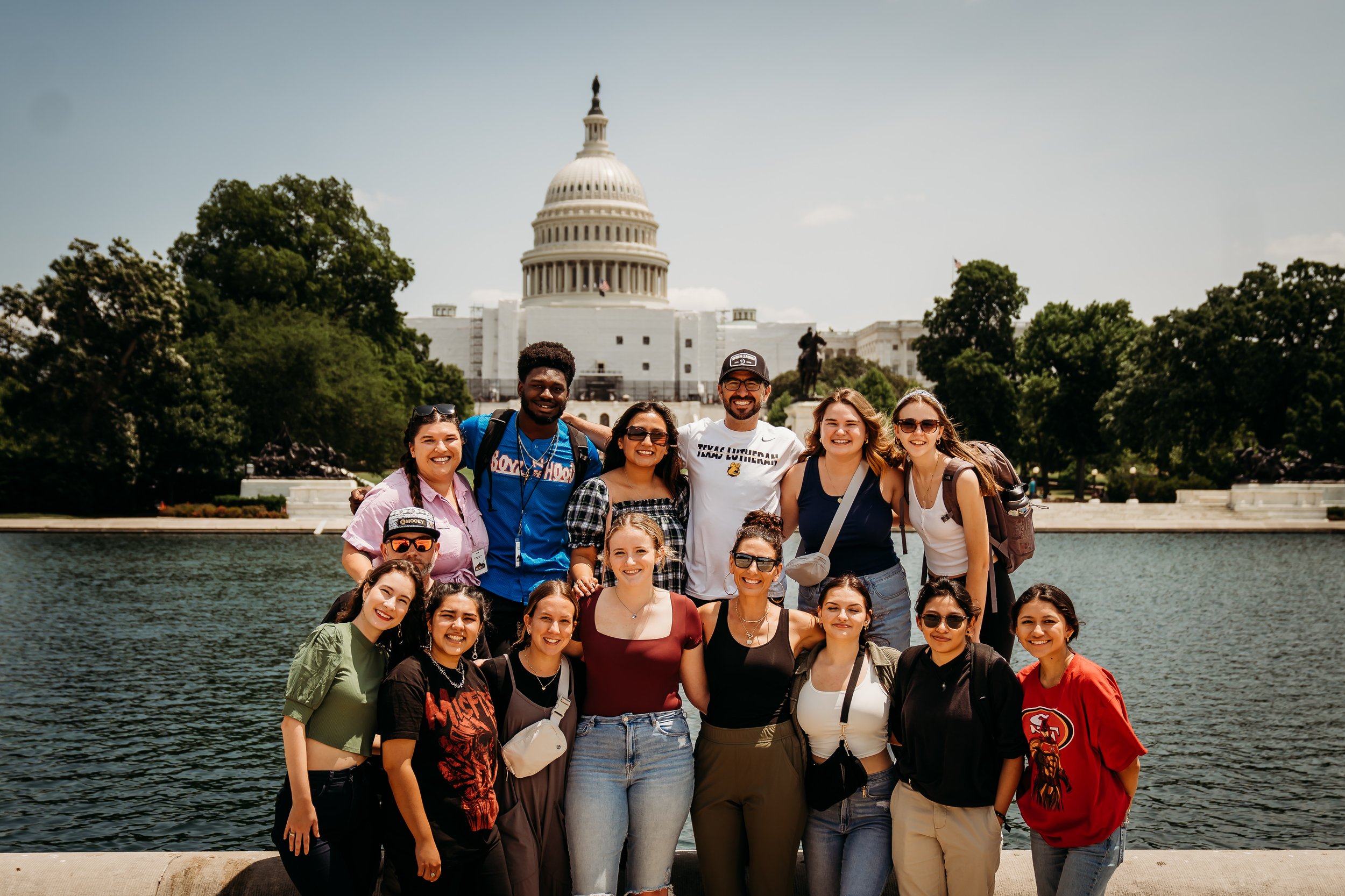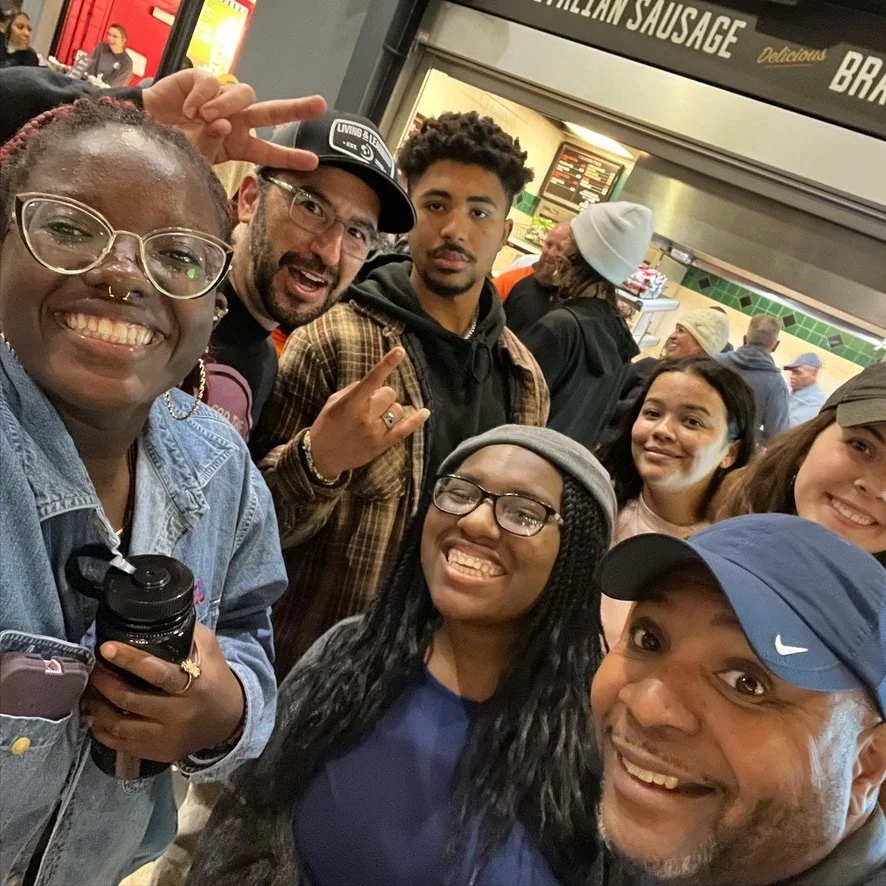
Semester
College Courses, Customized Internships, & Christian Discipleship
This experiential learning program on the East Coast, is designed to teach, mentor, and train you in spiritual formation and professional development. We partner with churches, clinics, agencies, and local community leaders to provide transformative learning experiences for you.
Whether you’re studying business, public health, political science, social work, ministry, or anything in between, we believe this is the place for you to grow and make an impact.
Courses
In and outside of the classroom, learn about the complex realities of public health, the intersection of ministry and social work, politics, and everything in between. You will gain a new perspective on the joyful work that God is completing in your community.
Internships
Learn from experts in your future profession. Whatever your major–we place you at an organization related to your interests. Develop skillsets that prepare you for life after college.
Community
Our staff and faculty disciple and mentor you throughout the program. Community comes to life through shared meals, processing your internship, and navigating the city together.
If You’re Studying
Then This Is The Place To Be
Courses
Select from the offered electives for a total of 12-18 credits. All courses are offered during both the spring and fall semester.
Required Courses
-
This course is delivered through an intensive 3-week hybrid module combining classroom lectures, seminar discussions, and field learning experiences to facilitate an immersive introduction to public health and epidemiology. Students learn undergraduate principles of epidemiology through the lens of justice and reconciliation in the US urban context. This course allows students to learn the foundational concepts of social and behavioral health, environmental health, health systems and global health policy, and epidemiology and statistical reasoning.
-
This course provides the theological framework for the spiritual formation curriculum for Baltimore Urban Studies. Students will learn from diverse cultural perspectives as they investigate the foundational beliefs of discipleship and Christian formation. This course gives focused attention on the implications of Christian formation in an urban context, the relationship between the Church and culture, and how theology informs, guides and facilitates personal transformation and community reconciliation. A component of this course delves into equipping students to cultivate contemplative practices that will help them deepen their personal relationship with Christ.
Select one practicum or internship course
-
This course provides academic scaffolding, guided reflection, seminar-based learning, and assessment for internships in the urban context. Mentorship from multicultural community leaders in private, government, non-profit, and religious agencies facilitates student learning of foundational principles of vocational praxis. Specialized semester-long internships exist for business administration, Christian ministry, church leadership, communications and leadership development, elementary and secondary education, environmental sciences, microbiology, non-profit management, psychology, refugee and immigrant community development, sociology, social work, and wholistic spiritual recovery from addiction and homelessness. This is a variable-credit course. Students earn 1 credit per 40 hours of internship - Minimum 3 credits (120 hours) & Maximum 12 credits (480 hours).
-
This course provides academic scaffolding, guided reflection, seminar-based learning, and assessment for urban public health internships. There are two options for a 120-hour internship (3 credits) or a 160-hour internship (4 credits). Internships include mentorship from multicultural Christian clinicians and learning experiences in human protection, health improvement, and health services in urban clinics and public health agencies of Baltimore, MD, and Washington DC. Students will gain an introduction to the foundational principles of public health and engage in constructivist learning from three months of urban public health learning experiences supported by academic readings, seminary discussions, and reflective writing assignments.
-
This course provides academic scaffolding, guided reflection, seminar-based learning, and assessment for Social Work Field Practice in the urban context. Practicum learning experiences include mentorship from multicultural and interdisciplinary community leaders in private, government, non-profit, and religious agencies while completing a minimum of 400 student social work practicum hours. Learning opportunities are structured to connect social work theory with practice and develop social work skills with various client systems within an agency context utilizing theory-based practice knowledge.
Various Elective Courses
-
Bioethics is the study of the ethical issues that arise in the study of human biology, ecology, nursing, medicine, public health, and other biological research fields. Drawing on a variety of ethical cases from recent biomedical literature, this course covers the conceptual foundations of moral theory, principles of justice, and the application of conceptual tools developed from those principles. This course includes two units: (1) Moral theories, distributive justice theories, and the ethical treatment of patients, the environment, and communities and (2) Consideration of alternative approaches to rationing health care.
-
The disproportionate burden of HIV/AIDS in global cities coupled with a decrease in HIV mortality and morbidity provide an opportunity to apply principles of community psychology to guide student understanding of the complex interplay of environmental and individual-level drivers that influence HIV prevention, treatment, and care. This course offers a unique perspective on how social structures, neighborhoods, and individuals shape HIV prevention and care delivery, particularly for communities living in urban poverty. Specific theories of participatory-action research, multi-level community interventions, structural dimensions of HIV stigma, and public health policy implications will be critically examined and discussed.
-
This course is an interdisciplinary sociology and history course challenging students to analyze the social dynamics of Baltimore City from 1861 to 2023. Critical analysis of topics including urbanization, migration, segregation, socioeconomic dynamics, and public policy. Students learn from the historical demography and contemporary issues that define the structure and culture of Baltimore city. This narrow geographical focus enables students to generate broad and deep sociological analyses of the major social challenges of Baltimore that are shared with many other global cities; and the historical and cultural context that often garner national and international attention.
-
Epidemiology is the study of the distribution of diseases and determinants of health and illness in diverse human populations. This course provides the opportunity for students to learn the principles and methods of epidemiology, with an applied focus on global and urban case studies. All students participate in a synchronous online epidemiology laboratory (STATA) performing statistical analyses of measures of disease frequency, transmission, and graphical representations of associations between exposures, or risk factors, on health and disease outcomes. This course includes mentorship from epidemiologists and clinicians who integrate Christian faith into public health practice in domestic and international contexts.
-
This course covers general aspects of undergraduate microbiology with an emphasis on endemic microorganisms and human interaction. Topics include an introduction to microbiology, microbial taxonomy, methods of microbial identification, immunology and infection. This course includes microscopy, staining, and microbiology laboratory applications with over 40 laboratory hours at the Baltimore Underground Science Station.
-
This course challenges students to learn the foundational principles of human nutrition across the lifespan. Students learn the physiology and functional science of nutrition from all 24 chapters of Discovering Nutrition (Insel et al.). Additionally, the course includes 10 public health nutrition laboratory experiences. Nutrition laboratory includes an analysis of the factors, systems, and structures that impact dietary patterns, dietary behaviors, food assistance, and safety net programs in the US. Students explore the policies, history, and complexities of urban access to healthy food and gain an introduction to the physiological, psychological, and socio-cultural factors that affect eating behaviors.
Internship Opportunities
Our semester program includes a built-in internship where you participate in 120-480 hours in a field related to your major. The internship is paired with a seminar course that provides opportunities for you to process and learn with other students and professors.
This off-campus study experience offers unique professional and academic opportunities for you. You’ll intern at leading institutions, learn at historic sites, and engage with the dynamic communities and cultures of the East Coast.
In our semester program, you’ll learn to thrive in urban life by engaging with the amazing people, communities, and cultures of four historic East Coast cities–Washington D.C., New York City, Philadelphia, and Baltimore.
Community
Program Cost: $16,800 per semester*
What’s Included:
Tuition for 12-18 credit hours
On-Campus Housing
Arrival and departure airport transportation
2/3 of all meals during the program
Full-time onsite staff and support
Public transportation passes for the city and surrounding areas
Multi-day educational excursions to Washington D.C., Philadelphia, and New York City
*Cost depends on your home institution. In most cases, if you are a student at one of our partner schools a semester with us will not cost you more than what you are currently paying for school! Please contact your off-campus study coordinator for details.
Program Details
-
January 7 - Arrival Day
January 8 - Program begins
January 8-24 - Block Course begins
January 27 - Additional Courses begin
February 1-2 - Excursions
February 5 - Internships start
April 28-May 1 - Exams and Debrief
May 2 - Departure
-
August 12 - Arrival Day
August 13 - Program begins
August 13-29 - Block Course
September 1-November 28 - Additional Courses
December 1-4 - Exams and Debrief
December 5 - Departure
-
January 6 - Arrival Day
January 7 - Program begins
January 7-23 - Block Course begins
January 26-April 23 - Additional Courses
April 27-30 - Exams and Debrief
May 1 - Departure
What You’ll Get

